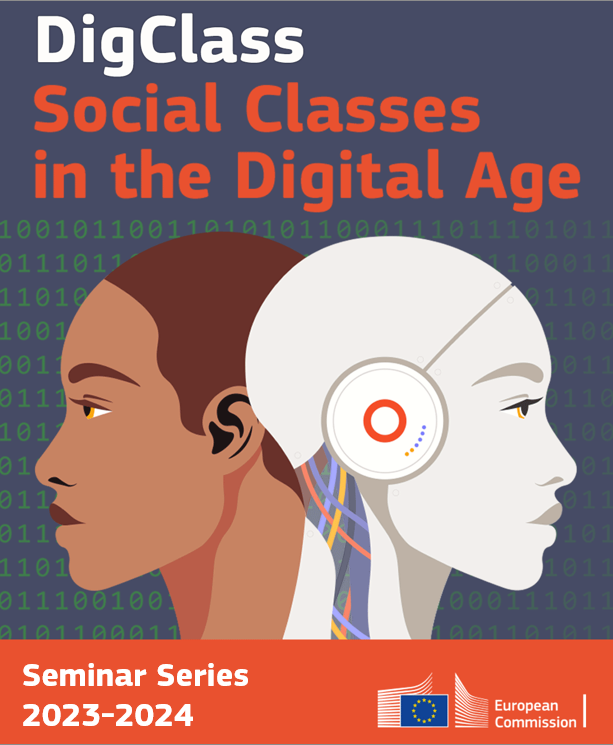This presentation on gender backlash will argue that women feel more threatened by feminism than men. The study confirms the ambivalent nature of social perceptions of feminism and highlights the difficulties of feminism in achieving large support among women.
This talk by Eva Anduiza is the 2nd session of the 2023-2024 DIGCLASS seminar series.
Live webstreaming will be available from this page next Tuesday, November 28th, from 15.00h.
- gender equality | political ideology | political right | social inequality | labour relations
- Tuesday 28 November 2023, 15:00 - 16:00 (CET)
- Online only
- Live streaming available
Practical information
- When
- Tuesday 28 November 2023, 15:00 - 16:00 (CET)
- Where
- Online only
- Languages
- English
- Organisers
- Joint Research Centre
- Part of
- Website
- Link to the session
- Social media links
Description
Gender, care work and perceptions of feminism as threatening
Far-right voting is often explained as a counter-reaction to cultural change, including to feminism. Men could be expected to feel more threatened by feminism than women, which in turn would explain their higher likelihood to vote for an anti-feminist far-right party. However, individuals’ perceptions of feminism as a threat have seldom been measured in their own right. Using novel survey data on the case of Spain, we find that, contrary to expectations, women feel more threatened by feminism than men. We theorize that care work may be related to perceptions of feminism as threatening because of the problematic relationship between care work and feminism. We find that women’s higher likelihood to feel threatened by feminism is partly explained by women’s stronger involvement in care work. Surprisingly, we find that increased care responsibilities also (and strongly) increase men’s perceptions of feminism as threatening. Further analysis shows that the effect of care work on perceptions of feminism as threatening is mediated by anxiety, and different types of care work differently affect men’s and women’s anxiety levels. We rule out alternative explanations related to occupational and employment status. The study confirms the ambivalent nature of social perceptions of feminism and highlights the difficulties of feminism in achieving large support among women.
Speaker*
Eva Anduiza is professor of Political Science and ICREA Academia research fellow. She founded the research group on Democracy, Elections and Citizenship in 2009, which she coordinated until 2023. She was 2018-19 fellow at the Center for Advanced Study in the Behavioral Sciences at Stanford University. She is the principal investigator of the Spanish Political Attitudes Panel, POLAT, a long-term endeavor currently on its 15th wave (2010-2023). Her research has examined citizens’ political engagement in advanced democracies. In recent years she has contributed to the understanding of how sexism and gender backlash are fundamental yet so far empirically neglected predictor of far-right voting; how polarization changes along the electoral cycle, and hence can be enhanced (and reduced) by the proximity (distance) of elections; how populist attitudes are fostered by anger rather than fear, and facilitated by internal political efficacy; how populist attitudes may work as a motivation for participation that compensates socioeconomic inequalities; how new parties can manage to quickly create party identities that are as meaningful and consequential as the identities with old parties; the different reasons for which people do not always punish corruption in elections; the negative consequences of violent tactics for social movement support. Currently, she is working on gender backlash and on how individuals’ attitudes toward gender equality and feminism change along time.
*Joint work with Gefjon Off (Leuphana University).
DIGCLASS Seminar Series
The DIGCLASS seminar series is expected to facilitate the exchange of cutting-edge ideas and debates related to social inequality, labour economics and political economy between JRC researchers and beyond by attracting external scholars, policy-makers and a general audience.
Visit the DIGCLASS website to check the full programme!
Drop us a line at JRC-CAS-DIGCLASS@ec.europa.eu if you want to stay tuned with our seminar series and other activities.

